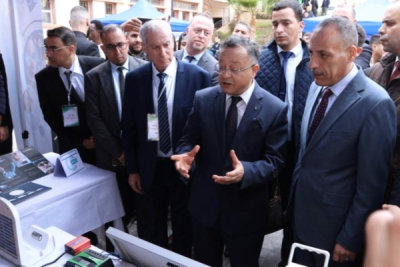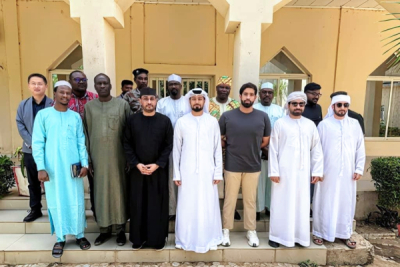Global development by 2050 requires combating global warming, a challenge that necessitates strong private sector involvement, especially from startups, alongside political action.
Tunisian startup MEPS (Methane Energy Production Solutions) secured second place at the Orange Summer Challenge (OSC) International 2024 with its intelligent, mobile, and autonomous biodigester, a technology designed to transform organic waste into biogas and natural fertilizer, reducing treatment costs and environmental impact. The innovation is spearheaded by Khouloud Ayachi, pictured, and her team.
Two years ago, Ayachi, whose family background includes farming and livestock breeding in Bargou, witnessed the economic hardship forcing her uncle and neighbors to sell their herds. This prompted her to develop a solution enabling farmers and breeders to sustain their livelihoods while generating added value. Drawing on her 2022 professional Master's degree in Environment and Physico-chemical Analysis of Industrial Soils from the Faculty of Sciences of Monastir, she launched the MEPS project.
The biodigester operates through a simple process: organic waste is introduced and "naturally transforms to produce biogas and biofertilizer." The biogas is stored for use in cooking, water heating, or powering agricultural equipment, while the biofertilizer is used to enrich soil, replacing chemical alternatives. Users can monitor biogas and fertilizer production via a mobile application and receive resource optimization advice. A chatbot provides on-demand assistance, and the system includes safety mechanisms to prevent gas leaks and flame hazards, Ayachi explained.
Developing the MEPS biodigester presented significant challenges, including financial constraints and the integration of complex safety features. With support from the Orange Summer Challenge, specifically through the École du Code and Fablab Solidaire, the team developed a high-performance prototype. They are now seeking funding to refine the solution and finalize a safer, more efficient product. "These experiences taught us the importance of innovation, collaboration, and perseverance. Thanks to our partners' commitment, MEPS is on track to become a comprehensive solution," said Ayachi, MEPS founder and CEO.
While initially targeting farmers and breeders, MEPS envisions expanding its technology to revolutionize organic waste management and reduce CO₂ emissions in the restaurant, hospitality, and industrial sectors, as well as for domestic use, in Tunisia and beyond. This ambition is fueled by the growing African and global greentech sector. "Demand for innovative and sustainable solutions is increasing. Businesses and consumers are more aware of environmental impact, and many industries are seeking alternatives to reduce their carbon footprint. We see this shift as an opportunity to diversify our solutions and meet a range of needs," Ayachi said.
Following their OSC International 2024 success, MEPS is preparing for real-world testing to ensure the biodigester meets user needs. Concurrently, a continuous improvement process will optimize the technology, business model, and services before scaling up. The goal is to establish a sustainable company capable of addressing future environmental and economic challenges.
Muriel EDJO



















